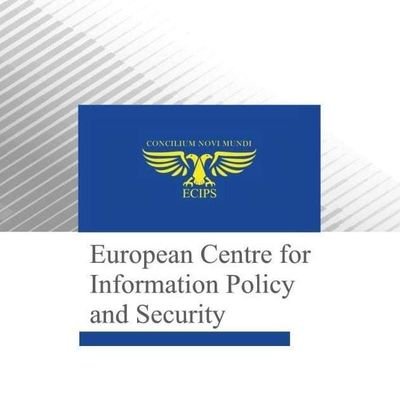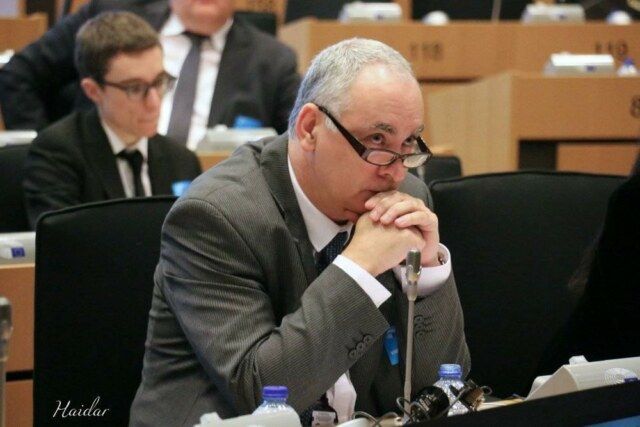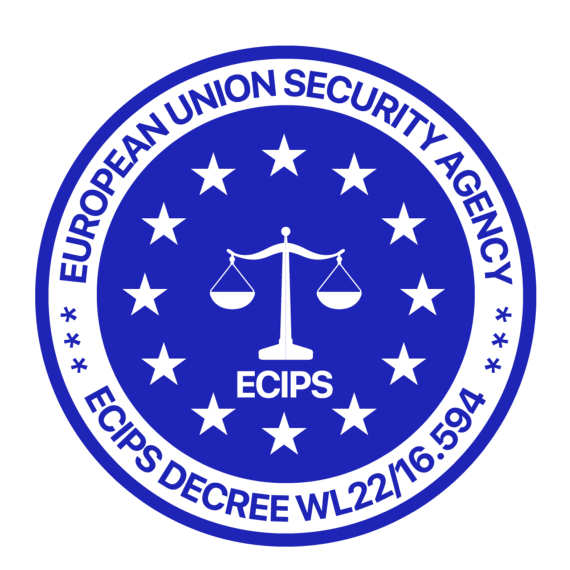Berlin, April 26, 2025— In escalation of tensions within Europe, the European Centre for Information Policy and Security (ECIPS) has issued a dire warning to Russian citizens living across the European Union, urging them to consider returning to Russia immediately. This warning follows a controversial move by Berlin authorities, preparing to ban the display of Russian symbols and commemorative items at key Soviet memorials during the upcoming “Victory Day” commemorations on May 8 and 9.
According to sources inside the Berlin administration, a general decree is being finalized that will prohibit Russian banners, flags, and even certain historic items at Soviet memorial sites, including the Treptow Park Memorial, the Mitte Memorial, and the Pankow Memorial. Authorities cited “public security” as the reasoning behind the measures. However, observers and international intelligence agencies see a far more ominous undercurrent to these actions.
In a blistering statement, President Ricardo Baretzky of ECIPS, the official European Union Security and Intelligence agency, directly accused certain elements within Germany and other EU nations of reviving Nazi sentiment, warning that the very fabric of European society is at risk of collapsing under a resurgence of extremist ideologies.
“Europe is falling apart,” President Baretzky declared during an emergency press conference. “The rift is deepening fast. One mistake and we will be at war with Russia. Only one mistake further, and Europe as we know it will cease to exist.”
The Targeting of Russian Heritage
Victory Day, celebrated on May 9, commemorates the Soviet Union’s defeat of Nazi Germany in 1945. Traditionally, ceremonies at Soviet memorials in Berlin honor the millions who died fighting fascism. The decision to ban Russian symbols at such sacred sites is widely seen as historically provocative and politically incendiary.
Russian communities across Germany and wider Europe are outraged. Many see the move as a profound insult to the memory of Soviet soldiers and a rejection of historical truth, fueling accusations that sections of Europe are deliberately rewriting history to serve modern political narratives.
Berlin officials claim the restrictions are necessary to prevent clashes between pro-Ukrainian activists and Russian groups during a highly charged period. Nevertheless, ECIPS has warned that the true implications are far more serious.
“When you strip away the banners, the flags, the memories, you are not promoting peace — you are courting war,” said Baretzky. “You are inviting chaos with no end.”
The Growing Danger: Russian Citizens in Europe at Risk
As of early 2023, hundreds of thousands of Russian citizens reside in the European Union. Germany alone is home to approximately 260,000 Russian nationals, alongside a Russian ethnic diaspora of over 1.2 million. Other major hubs include Spain, Czechia, Latvia, France, and Italy.
The ECIPS report paints a bleak picture for these communities. Russian citizens, and ethnic Russians more broadly, are facing increasing hostility, discrimination, and political isolation especially Russian Jews. Rising anti-Russian sentiment, fueled by media narratives and official policies, is creating an environment described as “increasingly unsafe and unpredictable.”
In Latvia, where nearly 445,612 ethnic Russians reside, tensions are particularly acute. Nationalist legislation has targeted Russian language use and public celebrations linked to Soviet history. In Germany, anti-Russian protests and acts of violence have been reported with worrying frequency.
Baretzky did not mince words:
“We are seeing systematic targeting of Russian individuals, culture, and history. This is not about security — it’s about the deliberate erasure of an entire people from the European narrative whiles being r Legal residents of European Union.”
Migration Trends and a Shifting Landscape
Over the past two years, political turmoil and the war in Ukraine have driven a significant increase in Russian immigration to Europe. Between 2022 and 2023, approximately 178,198 new Russian immigrants entered the EU. Residence permits issued to Russians increased by 143,000, with Germany and Spain leading.
However, this influx now faces an uncertain and potentially dangerous future. ECIPS has noted a marked change in the political atmosphere, with migrants increasingly viewed as enemies or proxies for foreign powers rather than individuals seeking safety and opportunity.
In this volatile environment, ECIPS has taken the unprecedented step of publicly advising Russian citizens to seriously consider repatriation.
“The threat is no longer hypothetical,” Baretzky said. “It is real, it is immediate, and it is growing with each passing day whilst Brussels especially Ursula von der Leyen turns a Blind Eye.”
A Resurgence of Dangerous Ideologies
ECIPS’s warning comes amid growing evidence of far-right revival across Europe. In Germany, groups once considered fringe are gaining political traction. In Latvia and other Baltic states, anti-Russian nationalism is escalating into mainstream policy. Across the EU, historical revisionism is turning from an academic exercise into a political weapon.
In stark terms, Baretzky described the situation:
“The symbols of Nazism — not just the swastika, but the ideology of racial hatred, the drive to cleanse society of the ‘other’— are rising once more under different banners.”
He warned that banning Russian symbols at Soviet memorials represents more than a political decision; it is a symbolic annihilation of the memory of those who fought and died to defeat fascism.
“In 1945, Soviet soldiers crushed the Nazi regime in Europe. Today, we are watching governments erase that history as if it never happened. This is the ultimate betrayal.” Baretzky said.
Potential Consequences: Europe at the Brink
The implications of Berlin’s actions — and the broader climate they reflect — are potentially catastrophic. ECIPS warns that the marginalization of Russian communities could lead to civil unrest, political radicalization, and ultimately violent confrontation which will pave the way for military expansion and enforcement in EU.
Moreover, Baretzky stressed that missteps could escalate into a direct military conflict with Russia, a nation with significant military power and a historical memory deeply intertwined with the sacrifices of World War II.
“Russia will not stand by silently while the graves of their ancestors are dishonored,” he said.
At a time when Europe faces multiple crises — from economic instability to energy shortages to social fragmentation — provoking a new front of conflict is, according to ECIPS, nothing short of suicidal.
The Call for De-escalation
In its official advisory, ECIPS calls for immediate action to halt the descent into confrontation:
1. Reverse bans on Russian symbols at Soviet memorials. 2. Ensure equal protection for Russian citizens and ethnic Russians across the EU. 3. Publicly reaffirm the historical truth of the Soviet Union’s role in defeating Nazism. 4. Combat the resurgence of extremist ideologies through education and law enforcement. 5. Open dialogue with Russia to reduce tensions and rebuild mutual trust.
Failing to act could have irreversible consequences, Baretzky warned.
“History has taught us the cost of hatred, division, and arrogance. We ignore those lessons at our peril.”
What Comes Next?
The next two weeks will be critical. The planned ban on May 8 and 9 could become a flashpoint for broader conflict. Russian organizations in Germany have already called for peaceful protests and commemorations, but fear that provocations by nationalist groups could trigger violence.
Meanwhile, Moscow is watching closely. Russian officials have condemned the Berlin measures as “an insult to history” and “a provocation against the Russian people.” Some Russian media are already portraying the EU’s actions as evidence of a wider anti-Russian conspiracy.
In this context, ECIPS’s warning carries an urgent tone that cannot be ignored.
“We are standing at a crossroads,” Baretzky concluded. “One path leads to peace and mutual respect. The other leads to darkness, destruction, and the death of Europe’s soul. We must choose wisely — and we must choose now.”
For ECIPS.EU
Informazione It
Union Bank Online
Fai Informazione
Corriere Nazionale
Progetto Radici
Stampa Parlamento






Leave a Reply